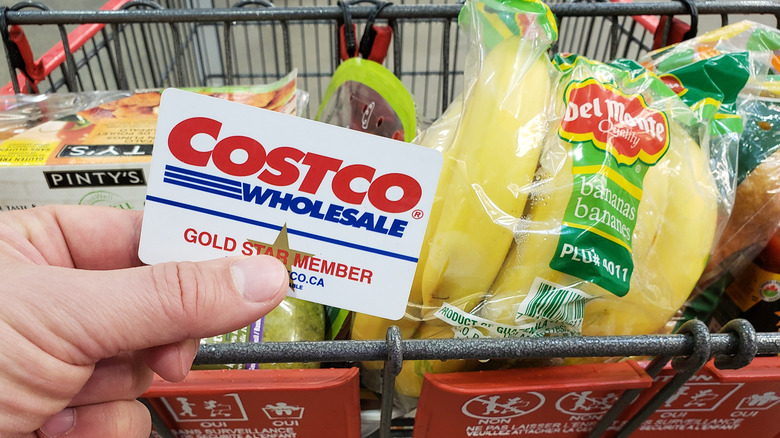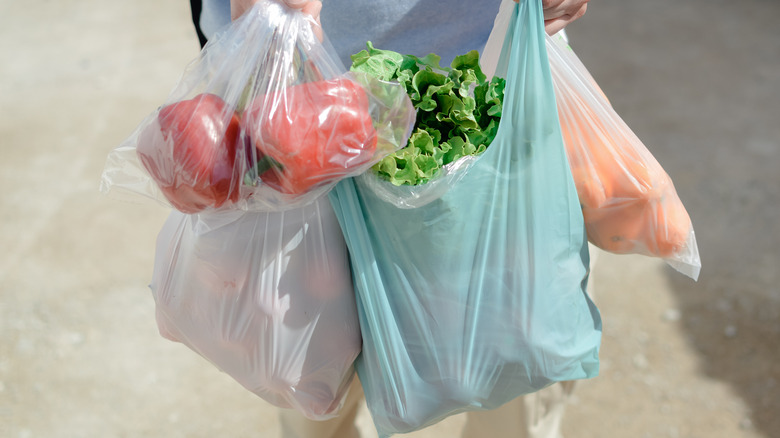The Reason Costco Doesn't Offer Shopping Bags At Checkout
We've all found ourselves in the difficult grocery store situation of opting against using a shopping cart to delicately carry goods in our arms instead. Eventually, inconvenience turns to sheer stubbornness, and for the sake of our pride, we'd rather struggle with our purchases than accept the help of a shopping bag.
Costco could therefore be considered a training camp for the stubborn. You certainly need a decent amount of resilience and determination to shop at Costco — because shopping bags aren't available at checkout.
Replacing paper bags, plastic shopping bags came to prominence in grocery stores in 1982 when they were adopted by Safeway and Kroger, explains ABC News. Being relatively strong and waterproof, plastic bags became a convenient method for transporting goods. That being said, why does Costco — a company operating 579 locations in the U.S. and Puerto Rico (per Costco) and famed for bulk purchases — not provide shopping bags?
Costco is trying to cut production costs
As frustrating as it may be that Costco does not provide shopping bags at checkout, the decision is (in theory) designed to benefit customers. Costco reports annual revenue of almost $223 billion, but it's still impacted by external pricing constraints. Consequently, Costco claims to keep operating costs down — and therefore the price of its products — by not providing shopping bags.
The New York Times estimates that plastic bags only cost a penny to produce. However, Costco's data shows that the company has 118.9 million membership card holders, and it's easy to see how those bag costs could stack up. The base ingredient of plastic bags is oil or gas, explains ABC News, which means that production costs will likely increase with higher oil and gas prices.
Costco also notes that fewer plastic bags means less plastic waste. According to ABC News, 380 billion plastic bags and wraps are used every year in the U.S., but only 9% of the world's plastic is successfully recycled, explains the Organisation for Economic Co-operation and Development. Most are put in a landfill, incinerated, or end up polluting water. The National Conference of State Legislatures reports that eight U.S. states have outright bans on single-use plastic bags, including California, New York, and Delaware.

